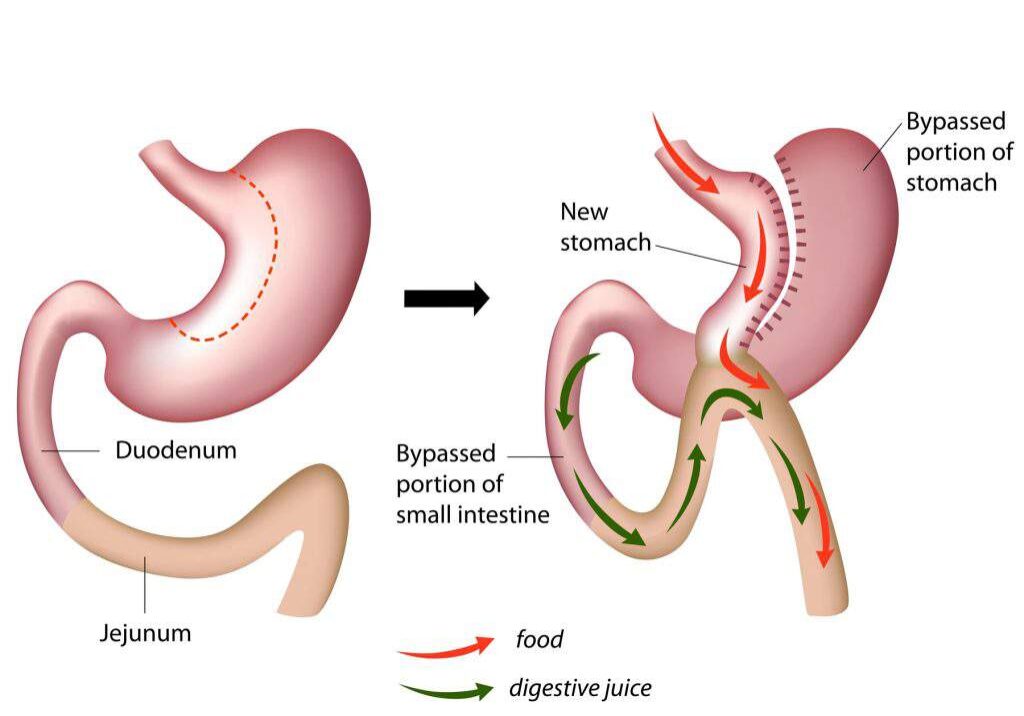Laparoscopic Mini Gastric Bypass

A mini gastric bypass - sometimes referred to as an omega loop gastric bypass or one anastomosis gastric bypass - uses a combination of malabsorption and
restriction to achieve the result of weight reduction.
Because a mini gastric bypass closes off a large part of the stomach and delays food from entering, it is able to limit the volume of food that the stomach can hold and decrease food intake. Consequently, a longer feeling of fullness can be felt by the mini gastric bypass patient.
It also bypasses a longer length of small bowel compared to the Roux en Y gastric bypass hence the mild malabsorption.
The mini gastric bypass creates a long stomach pouch (15cm approximately), which is divided from the rest of the stomach. No food can then enter the rest of the stomach which is below the staple line. The stomach does continue to produce the enzymes and gastric juices which are important for digestion, as well as the absorption of nutrients.
The pouch in the mini gastric bypass is longer than in the Roux en Y gastric bypass to avoid reflux of bile in the oesophagus. The mini gastric bypass is performed with key holes surgery, usually 4 small incisions, and takes around 60 minutes to be completed.
The downside of the mini gastric bypass is reflux of bile. Patients with bile reflux symptoms may need the mini gastric bypass converted to a Roux en Y gastric by pass.
Like all weight loss surgery procedures, the Gastric Bypass is a tool. Used correctly and following the advice given by the OxBariatric team, you can expect to achieve weight loss of between 70-75% of your excess body weight over 2 years.
You will need to make lifestyle changes to work with the procedure. The more you are willing to change, the better the results you can expect.
What are the advantages of a Mini Gastric Bypass?
- Simpler to perform than the Roux en Y gastric bypass
- Better weight loss compared to the Roux en Y gastric bypass (75% Excess Body Weight Loss vs. 70%
- A very effective treatment for obesity-related health conditions (Type 2 diabetes,obstructive sleep apnoea, high blood pressure, arthritic pain)
- Reduction of pressure in the knees dues to lost weight.- Improved quality of life by making the performance of everyday activities easier.
Think about the following prior to the procedure
Get active - walking a little further each day will help you to prepare for surgery and will help you feel positive. Try to aim for short walks totalling 30 minutes.
Eat healthier - think about the food you are consuming. By reducing your calorie intake and drinking more water can help.
Think about your health - advise your GP you are thinking about this procedure. Keep appointments with your physicians.
Stop drinking alcohol - stop at least 2 weeks prior to the operation. Not only will it help your overall calorie control but it will help reduce cravings.
Stop drinking alcohol - stop at least 2 weeks prior to the operation. Not only will it help your overall calorie control and will help reduce cravings.
Information leaflets
Contact Us
